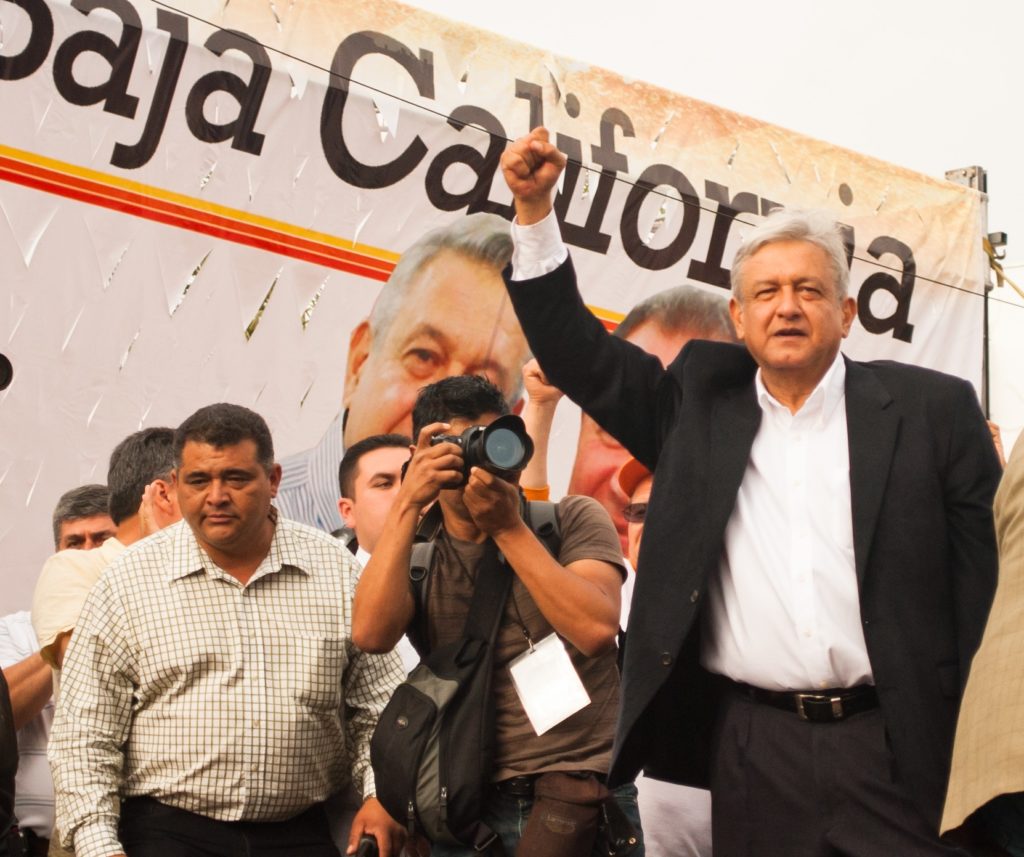
I was just in Mexico for several days. I went to speak at a celebration of the victory of Andrés Manuel López Obrador (AMLO), the president-elect. The meeting was held at UNAM, Mexico’s national university.
The meeting was intended to stimulate a critical and open reflection about where Mexico goes next. Not every supporter has the same vision of the future.
Many members of AMLO’s cabinet attended. But the ministers restricted themselves to chairing sessions rather than giving papers. It was as though they didn’t want to be challenged publicly about their views.
In private, many persons labelled ministers as being on the left or the right. AMLO himself had always avoided these labels, insisting that he led a national rebellion against the corruption and repressiveness of the long-time dominant party known in its latest name as PRI and its even more rightwing allied party known as PAN.
Judgments about AMLO’s future trajectory vary considerably. Some on the left are violently against him, arguing that he has always ended up with rightwing positions. Others on the left insisted that he had fulfilled already one major promise, which was to withdraw from the money-draining, corruption-prone, and technologically-foolish project of building a new airport in Mexico City. The latter group said AMLO should be given a chance to demonstrate his left credentials.
It is Mexico’s foreign policy that is the biggest open question. Thus far, AMLO has seemed to promote a primarily nationalist policy as opposed to an openly anti-imperialist policy.
There are two arenas in which Mexico will have to make basic decisions. One is Latin America and the Caribbean. The other is NAFTA.
The left in Latin America in general has viewed AMLO’s victory as a renewed insurgence of the left after a decade of counter-revolution. Will AMLO allow Mexico to play its role in the effort to create Latin American institutions that exclude the United States and Canada? This seems very unsure at the moment.
The second arena is NAFTA, where Trump is bullying the partners to sign an agreement with the United States that is to the advantage only of the United States. The outgoing president of Mexico signed just such an agreement. How will AMLO handle this giveaway? He may not allow the agreement to be ratified. But is this enough?
Mexico was governed for more than fifty years by a corrupt rightwing so-called party whose best-known name was the Partido Revolucionario Institucional (PRI). AMLO has ended PRI’s monopoly. But will he replace PRI with something fundamentally different?
One left analyst explained to me that PRI was not a party but a culture. What the left must do, he said, was create an alternative culture – in Mexico and indeed everywhere else. Is the Mexican left in the process of doing this?
Immanuel Wallerstein, Senior Research Scholar at Yale University, is the author of The Decline of American Power: The U.S. in a Chaotic World (New Press).
